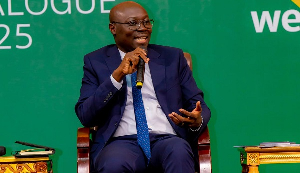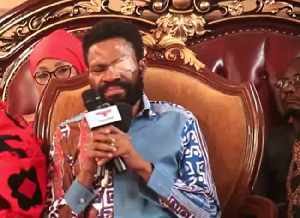Ho, Feb. 08, GNA - The Ho Municipal Network of the
Governance Issues Forum (GIF-Net) has called on the Ho
Municipal Assembly to build modern satellite markets and lorry
stations in the Municipality. This is because the existing main market and lorry station
could no longer cope with the rapid growth and expansion of the
municipality and its population.
The Network made the call at a training workshop on public
deliberation and dialogue organised by the Institute of Democratic
Governance (IDEG). The GIF, introduced by the IDEG in 2004, seeks to empower
citizens to participate actively and pro-actively in decision making
and development planning at the local level. The Ho Municipal GIF-Net said the Central Market in the
Municipality had been overstretched to the extent that it could no
longer hold the traders and customers within its 93bowels" resulting
in uncontrollable spill over onto its fringes on market days as
people and vehicles struggle for space. The Network also said the central market and lorry park
lacked essential modern facilities such as toilets and urinals, and
warehouses compelling the traders to build metal containers to
serve as warehouses.
It said the shortcomings of the market tended to undermine
security as some traders stayed on in the market to as late as 2100
hours waiting for porters to convey their wares to their homes. Mr Kofi Tenasu Gbedemah, Ho Municipal Co-ordinator of
GIF-Net, called on the Network members to strengthen their
alliance in order to tap the expertise of each other for
effectiveness. He urged the Network to be relentless in the pursuit of the
community good. Mr Gbedemah also called on the member groups to be
abreast with the Assembly's bye-laws and other legislations on
local governance so as to be able to argue their cases effectively
by building a strong alliance with the Media. Mr Douglas Quartey, Project Officer of GIF at IDEG, said
the best way to empower the citizenry for democratic governance
was to offer them training in the techniques of engaging public
office holders. He said constructive engagement with public office holders
based on knowledge constituted a more potent approach to
getting office holders to be receptive to the demands of the public.
Regional News of Tuesday, 8 February 2011
Source: GNA












